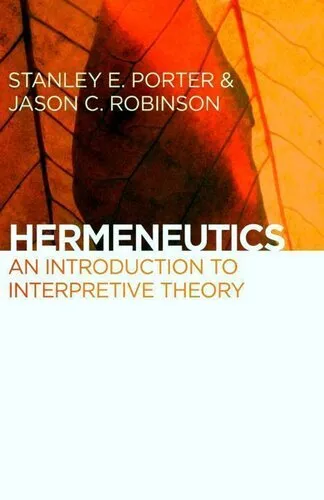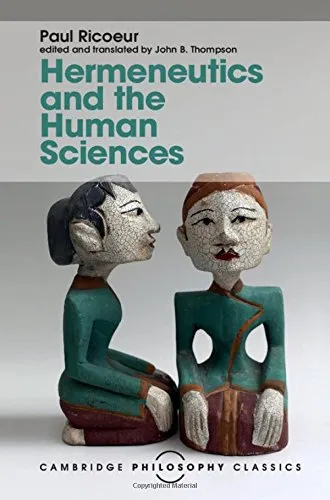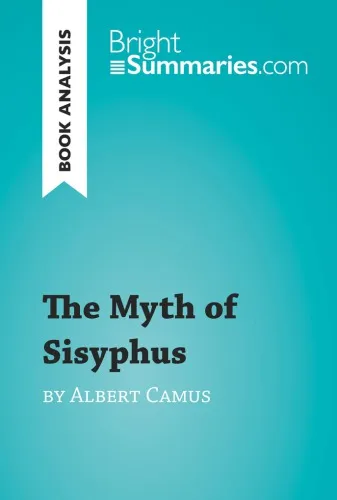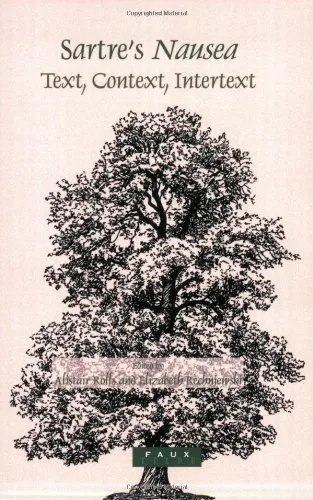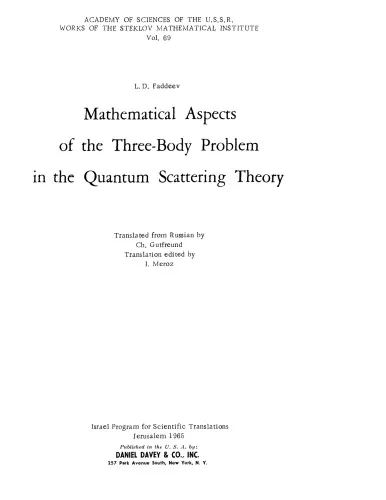Hermeneutics: An Introduction to Interpretive Theory
4.0
Reviews from our users

You Can Ask your questions from this book's AI after Login
Each download or ask from book AI costs 2 points. To earn more free points, please visit the Points Guide Page and complete some valuable actions.Related Refrences:
Hermeneutics: An Introduction to Interpretive Theory
Welcome to the intricate and fascinating world of hermeneutics, where understanding and interpretation converge. Stanley E. Porter and Jason C. Robinson's book, "Hermeneutics: An Introduction to Interpretive Theory," serves as a comprehensive guide to this pivotal field, exploring its depths with clarity and scholarly insight. This introductory text is crafted to engage both novice learners and seasoned scholars alike.
Detailed Summary of the Book
In "Hermeneutics: An Introduction to Interpretive Theory," Stanley E. Porter and Jason C. Robinson delve into the essence of hermeneutics, providing a chronological journey through the history and evolution of interpretive theories. The authors meticulously map out various hermeneutical strategies, starting from classical antiquities and moving through modern philosophical developments. The book underscores the influence of pivotal thinkers such as Schleiermacher, Dilthey, Heidegger, and Gadamer, detailing their contributions to the field.
The narrative carefully distinguishes between different hermeneutical methodologies, including philosophical, theological, and critical hermeneutics, illuminating their unique perspectives and applications. Porter and Robinson emphasize the role of hermeneutics in shaping discourse across disciplines, from literature and theology to law and social sciences. Through an analytical lens, the authors highlight the dynamic and evolving nature of interpretation, stressing the importance of context, the interpreter's perspective, and the multiplicity of meanings that texts may yield.
Key Takeaways
- Hermeneutics bridges the gap between textual understanding and human experience.
- Interpretation is inherently subjective, influenced by cultural and contextual factors.
- The evolution of hermeneutical thought emphasizes the shift from objective to subjective understanding.
- Prominent thinkers have continuously reshaped and expanded the boundaries of hermeneutics.
- This book offers a robust framework for analyzing texts across various academic and professional fields.
Famous Quotes from the Book
"Interpretation is not a method for obtaining homogeneity in meaning; rather, it is the art of perceiving and negotiating the plurality of meanings."
"Hermeneutics invites us to venture beyond the surface of the text, diving into the depths of context, intention, and the myriad echoes that shape understanding."
Why This Book Matters
This book is an essential contribution to the field of hermeneutics. Its relevance lies in its ability to equip readers with a nuanced understanding of the interpretive process, highlighting the interplay between texts, interpreters, and broader cultural frameworks. Porter's and Robinson's work is particularly significant for its comprehensive historical overview and critical examination of interpretive methodologies, providing academics, students, and professionals with a foundational text that enhances their analytical capabilities.
In an era marked by information overload and fragmented narratives, the insights garnered from this book become even more critical. It encourages a reflective approach to knowledge and meaning-making, fostering skills that are vital not only in academic settings but also in everyday life. "Hermeneutics: An Introduction to Interpretive Theory" therefore matters not only as an academic resource but as a tool for enhancing critical thinking and intercultural dialogue in an increasingly complex world.
Free Direct Download
You Can Download this book after Login
Accessing books through legal platforms and public libraries not only supports the rights of authors and publishers but also contributes to the sustainability of reading culture. Before downloading, please take a moment to consider these options.
Find this book on other platforms:
WorldCat helps you find books in libraries worldwide.
See ratings, reviews, and discussions on Goodreads.
Find and buy rare or used books on AbeBooks.
1546
بازدید4.0
امتیاز0
نظر98%
رضایتReviews:
4.0
Based on 0 users review
Questions & Answers
Ask questions about this book or help others by answering
No questions yet. Be the first to ask!
